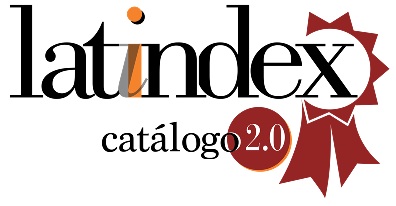How do graduate academics promote social responsibility in their work?
DOI:
https://doi.org/10.5281/zenodo.10775794Keywords:
university social responsibility, pos-graduate academics, social pertinenceAbstract
In the development of the project “Applied Ethics and Education” from the National Autonomous University of Mexico, we considered relevant to study the issue of the social responsibility of the universities. This interest is based on the importance of the mission traditionally attributed to higher education institutions and the existence of a business model that privileges the capitalization of knowledge. Faced with this reality, the question was asked to a group of postgraduate academics: how do you promote social responsibility in your work? We employed a qualitative research, in which a questionnaire of open questions, and a content analysis was used through which a great diversity of strategies was identified that was organized into four categories: Search for social relevance, Relationship with students, Ethics and Values, and Dissemination of the academic work. These results were compared with the literature analysis carried out, and in this way the importance of the strong relation between the university and the communities was confirmed. The role played by postgraduate professors and researchers was also emphasized, so that, through their work, they respond to the diversity of social problems and can contribute to the construction of a more just and inclusive society.
Downloads
References
Arocena, R. (2018). De los principios de la Reforma de Córdoba a la Universidad para el Desarrollo de América Latina en el siglo XXI. Integración y Conocimiento, 7(1), 54-67. https://www.colibri.udelar.edu.uy/jspui/handle/20.500.12008/22671
Arocena, R., Göransson, B., & Sutz, J. (2018). Developmental Universities in Inclusive Innovation Systems. https://doi:10.1007/978-3-319-64152-2
Avramovic, A., Pinheiro, R., & Asante; M. (2022). To Be or Not to Be Responsible? Academic Research and Social Responsibility. Higher Education Forum, 19, 131-153. https://files.eric.ed.gov/fulltext/EJ1350630.pdf
Coelho, M. & Menezes, I. (2021). University Social Responsibility, Service Learning, and Students´ Personal, Professional, and Civic Education. Frontiers in Psychology, 12: 617300. https://doi.org/10.3389/fpsyg.2021.617300
Cornejo Zaga, C. (2022). La Responsabilidad Social Universitaria y sus dimensiones para el desarrollo local: una revisión postpandemia. Ciencia Latina Revista Multidisciplinar, 6(6) 11558-11581. https://doi.org/10.37811/cl_rcm.v6i6.4216
Espinoza Freire, E. (2020). La investigación cualitativa, una herramienta ética en el ámbito pedagógico. Conrado, 16(75), 103-110. http://scielo.sld.cu/scielo.php?script=sci_arttext&pid=S1990-86442020000400103&lng=es&tlng=es .
Gaete-Quezada, R. (2020). Dirección de valores y responsabilidad social en universidades estatales chilenas. RIDU Revista Digital de Investigación en Docencia Universitaria, 14(1) n°1, e1073. https://doi.org/10.19083/ridu.2020.1073s
Godonoga, A. & Sporn, B. (2022). The conceptualisation of socially responsible universities in higher education research: a systematic review, Studies in Higher Education, 48(3), 445-459. https://doi.org/10.1080/03075079.2022.2145462
Kadlec, Z. & Simic, M. L. (2021). University Social Responsibility: Croatian Perspective. Responsibility and Sustainability (R&S). Socioeconomic, Political and Legal issues, 6(1), 57-66. https://responsibility-sustainability.org/index.php/R-S/article/view/92
Ley General de Educación (2021). Diario Oficial de la Federación del 20 de abril de 2021. https://www.diputados.gob.mx/LeyesBiblio/pdf/LGES_200421.pdf
Olvera León; G. C., Sánchez-Armáss Capello, O., Palacios Rodríguez, O. A., Medina Orta, S. Y. y Armendáriz, R.E. (2022). La Responsabilidad Social Universitaria y su implementación: una revisión panorámica. Emerging Trends in Education, 4(8A) 107-124. https://doi.org/10.19136/etie.a4n8A.4756
Ponce, O. A., Gómez-Galán, J., & Pagán-Maldonado, N. (2022). Qualitative research in education: revisiting its theories, practices and developments in a scientific-political era. IJERI: International Journal of Educational Research and Innovation, 18, 278–295. https://doi.org/10.46661/ijeri.5917
Santana Murcia, A. R. (2022). Evaluación de la Responsabilidad Social Universitaria: una revisión sistemática de la literatura. Emerging Trends in Education. 4(8A), 16-31. http://dx.doi.org/10.19136/etie.a4n8A.4754
Shava, G., Hleza, S., Tlou, F., Shonhiwa, S. y Mathonsi, E. (2021). Qualitative Content Analysis, Utility, Usability and Processes in Educational Research GN. International Journal of Research and Innovation in Social Science, 5(07), 553-558. https://www.rsisinternational.org/journals/ijriss/Digital-Library/volume-5-issue-7/553-558.pdf
UNAM (2015). Código de ética de la UNAM. http://dgapa.unam.mx/images/etica/2015_codigo-etica-unam.pdf.










































